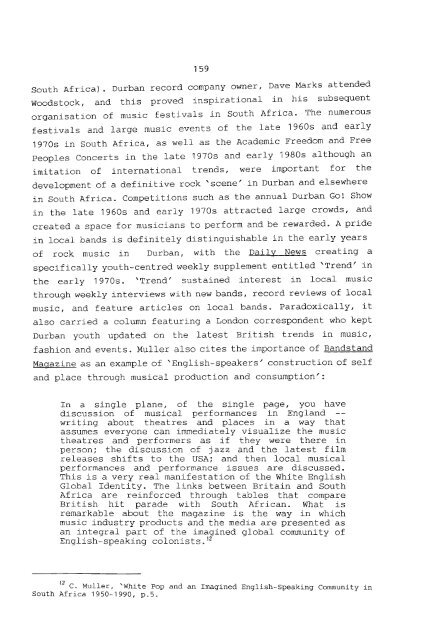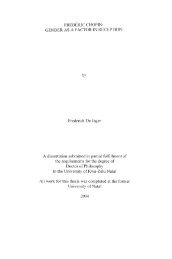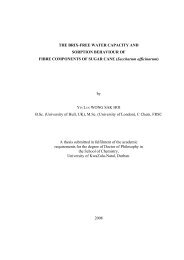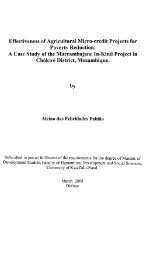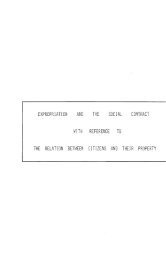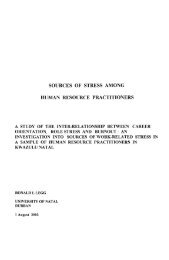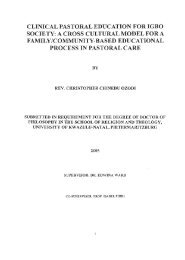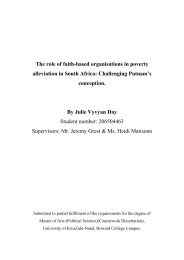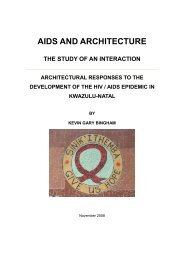FROM ROCK 'N 'ROLL TO HARD CORE PUNK - UKZN ...
FROM ROCK 'N 'ROLL TO HARD CORE PUNK - UKZN ...
FROM ROCK 'N 'ROLL TO HARD CORE PUNK - UKZN ...
Create successful ePaper yourself
Turn your PDF publications into a flip-book with our unique Google optimized e-Paper software.
159<br />
South Africa). Durban record company owner, Dave Marks attended<br />
Woodstock, and this proved inspirational in his subsequent<br />
organisation of music festivals in South Africa. The numerous<br />
festivals and large music events of the late 1960s and early<br />
1970s in South Africa, as well as the Academic Freedom and Free<br />
Peoples Concerts in the late 1970s and early 1980s although an<br />
imitation of international trends, were important for the<br />
development of a definitive rock 'scene'.in Durban and elsewhere<br />
in South Africa. Competitions such as the annual Durban Go! Show<br />
in the late 1960s and early 1970s attracted large crowds, and<br />
created a space for musicians to perform and be rewarded. A pride<br />
in local bands is definitely distinguishable in the early years<br />
of rock music in Durban, with the Daily News creating a<br />
specifically youth-centred weekly supplement entitled 'Trend' in<br />
the early 1970s. 'Trend' sustained interest in local music<br />
through weekly interviews with new bands, record reviews of local<br />
music, and feature articles on local bands. Paradoxically, it<br />
also carried a column featuring a London correspondent who kept<br />
Durban youth updated on the latest British trends in music,<br />
fashion and events. Muller also cites the importance of Bandstand<br />
Magazine as an example of 'English-speakers' construction of self<br />
and place through musical production and consumption':<br />
In a single plane, of the single page, you have<br />
discussion of musical performances in England<br />
writing about theatres and places in a way that<br />
assumes everyone can immediately visualize the music<br />
theatres and performers as if they were there in<br />
person; the discussion of jazz and the latest film<br />
releases shifts to the USA; and then local musical<br />
performances and performance issues are discussed.<br />
This is a very real manifestation of the White English<br />
Global Identity. The links between Britain and South<br />
Africa are reinforced through tables that compare<br />
British hit parade with South African. What is<br />
remarkable about the magazine is the way in which<br />
music industry products and the media are presented as<br />
an integral part of the imagined global community of<br />
English-speaking colonists. 12<br />
12 C. Muller, 'White Pop and an Imagined English-Speaking Community in<br />
South Africa 1950-1990, p.5.


